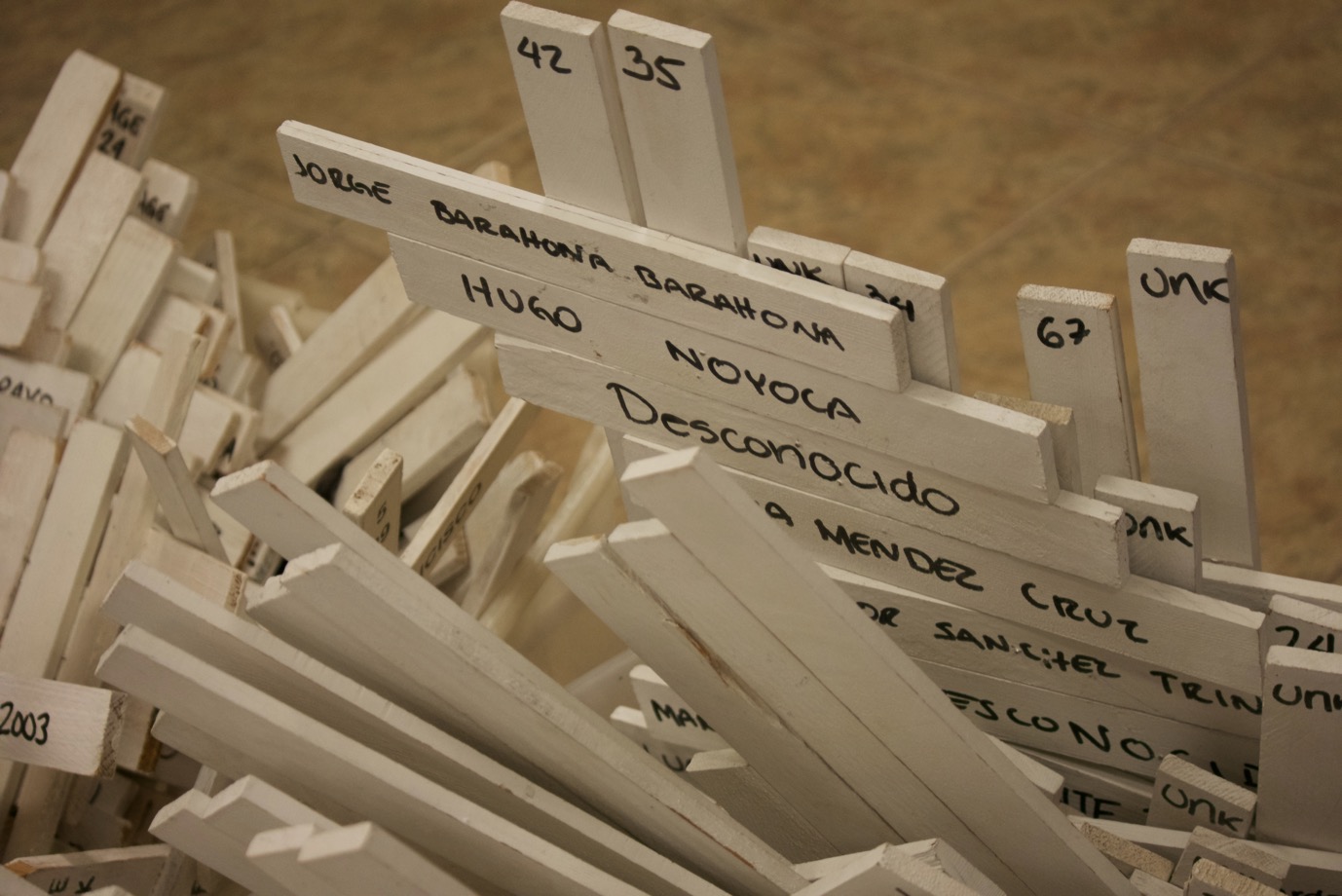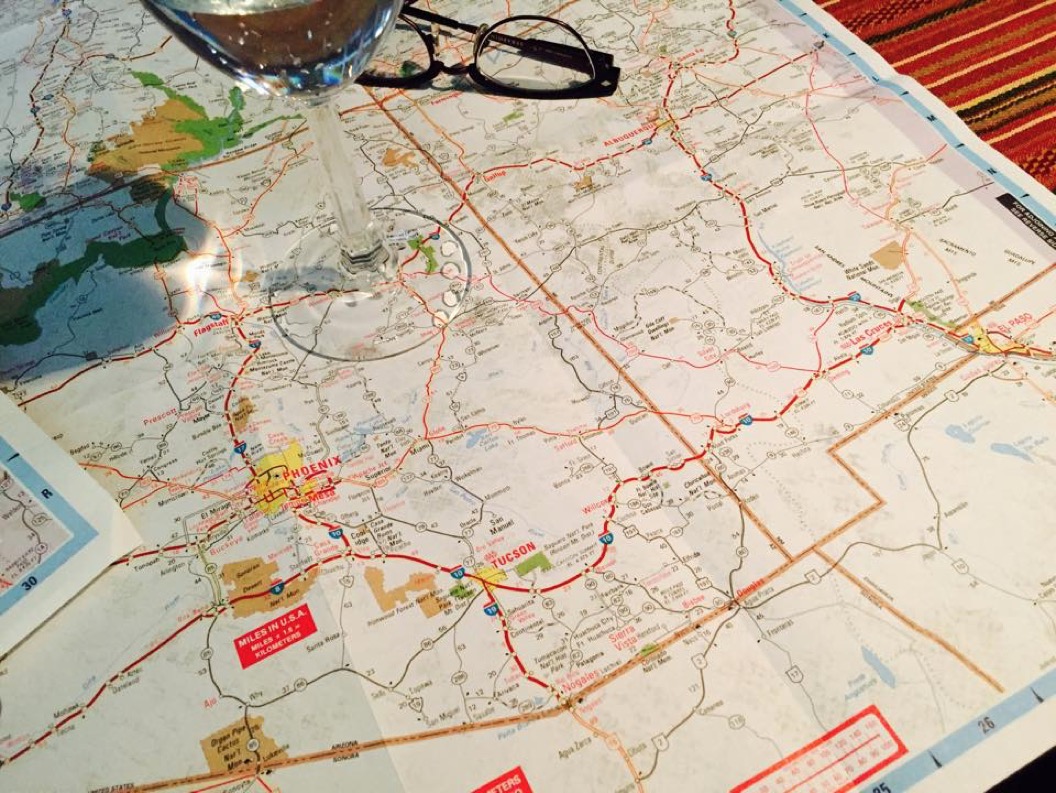The U.S. - Mexican Border: Tucson, Arizona
May | 2015
 May 12, 2015 —
May 12, 2015 — These crosses were piled high in the front room of
Derechos Humanos when I arrived at this South Tucson nonprofit organization. This scene immediately sent chills through my spine. The crosses bear the names of people who were found and identified in the Tucson desert, and a number at the tip of the cross signifies the number they were assigned as they are added to the list of deaths each year. I am told that between the year 2000 and 2014, 2,771 bodies were found in the Tucson desert.
Coalición de Derechos Humanos, located in South Tucson, is a trusted community resource that receives calls daily from family members looking for loved ones who went missing after crossing the border.
One of their most moving project is to count the number of bodies recovered in Arizona every year between October 1 and September 30. They do this to compare the numbers put out by the government officials with those that are gathered by their volunteers. They collaborate with Consular offices and county medical examiners and collect this information all year.
From their website: In an effort to honor every life that has been lost on our borders,
Coalición de Derechos Humanos records the number of bodies that are recovered on our border. With the cooperation of Arizona county officials, as well as the Consular offices of México, Guatemala, El Salvador, Honduras, and Brazil, and the Binational Migration Institute, they simply want to put names to immigrants crossing the desert every day, and to bear witness to the deaths of those unknown, of whom there are hundreds buried in our communities.

Standing next to the pile of crosses was Christen Vernon, who looked tired yet greeted us with a broad smile. Christen started off as a volunteer at
Derechos Humanos and is now serving as the part-time Director. She tells us they are desperately in need of volunteers. "People come by wanting to volunteer," she says, "but after a few weeks don't return. The work here is emotionally exhausting."

One of the volunteers at
Derechos Humanos interviews someone on the day I was there. This gentleman had not heard from his family who had set out through the desert over two weeks prior to this day. He was concerned and just needed to talk to someone.

Above is a map of the desert that is marked with spots where bodies have been found.

As I take in everything I hear and see around me, my heart feels so heavy. Mel cuts through all that for me as she adds a light moment sketching cartoons, which she gives to this young girl before we leave.
Next ➤➤






